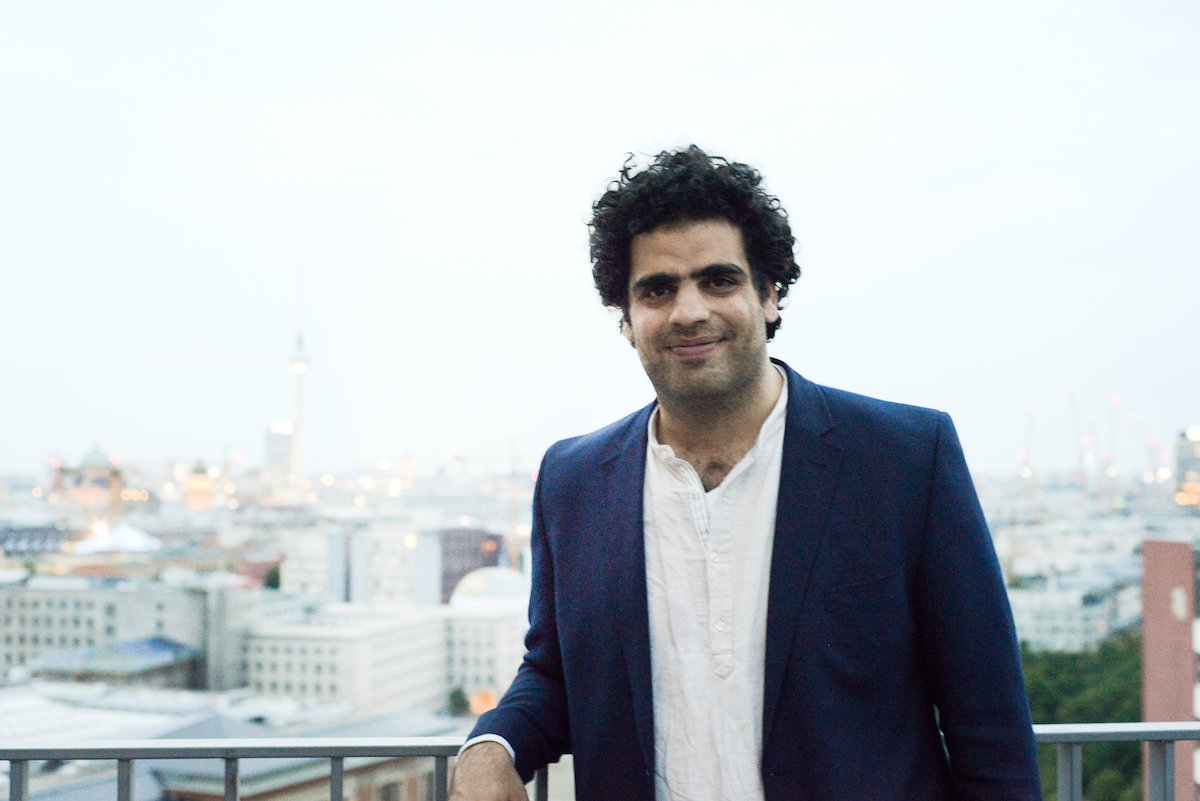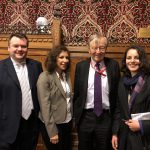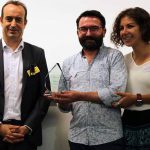‘My plan was to provide something different’
An interview with Ahmad Katlesh
How did you start writing when you were in Syria?
Before university I made some childish attempts, like any teenager who wants to be a poet. When I decided to start university, my idea was to pursue a scientific subject as the foundation of the knowledge on which I would build my life. But, in parallel, I wanted to read and deepen my knowledge of literature. This was a very difficult path to maintain, though with hindsight it’s a beautiful memory, despite the pressures that followed.
After that I started writing stories which were published in Syrian newspapers. I published my first two novels when I was 21 years old and I also wrote modern poetry.

And what did you do after that?
After I left Syria for the first time, during the revolution, for Jordan, I started a new experiment which drew on all the external and internal changes associated with that. I began a project which involved setting up a platform for recordings of Arabic literature which were professionally translated; this was improved over time as I took sound training and mixing courses. This platform on Soundcloud became a major project after I noticed that many young people who weren’t readers were turning to books for which I had provided recordings. At the same time I was trying to diversify the content, to steer clear of the popular, the well known and the tasteless to provide an alternative. My plan was to provide something different.
This was followed by other projects, including working on the sound ontology for two cultural institutions in the Arab world as well as a partnership with a German website to publish Arabic recordings.
My site has received more than 5.6 million visits at the rate of 5,000 a day, and has reached 30,000 followers from all over the world.
In Jordan I published my first poetry collection, “Taste of the Oriental Door”, and then started publishing because I felt I needed radical changes in my writing in terms of structure, vision and shape. That’s what I’ve been working on for the last four years.
I moved to Germany in 2017 with a literary grant from the Heinrich Böll Foundation and stayed at the Heinrich Böll house for nearly a year. During that year I worked on a show, “Push”. I also put together and introduced a book “Nakhal al-Khati”, in both print and audio formats, with the support of the “Itijahat” foundation and published by Dar Mamdouh Adwan. It documents the changes in Syrian poetry that followed a period of stagnation before the revolution, a period which was followed by upheaval with the acceleration of social, political, economic and intellectual change initiated by the revolution. This upheaval was accelerated further by new influences such as the ensuing war, asylum and new places for poets, as well as the tense relationship between poets from outside and within Syria.
The book collects selected writing from twenty-one poets whose experience was of Syria and who were later exiled, both to countries in the Arab world and further afield including Germany, bringing together a large number of Syrian poets and artists.
What has inspired you?
This is a difficult question to answer because, as time passes and our artistic understanding changes as we read, write and engage, our vision of the writers and artists we love changes too. The effect is always temporary, it transcends to other artists. Inspiration is life experience in all its complexity and simplicity, the changes that have come with the revolution, migration and mobility, the accompanying loss of relationships and work and having had to start again at every point. All this is a repository of experience that leads to new writing, not necessarily better but new.
As a creative professional now based in Europe, a very competitive environment, how do you manage to survive as an artist?
I don’t see writing as competitive in terms of value at all, rather in terms of one’s ability to market oneself or compete for opportunities. This isn’t healthy because it is linked to political changes and asylum issues. No matter how hard you try to build your experience outside these categories, it puts you back in that box, because you are invariably seen as one of those asylum writers and your experience means your work will be labelled “refugees’ writing” or assumed to address issues with no real artistic experience.
I believe this is unjust because by doing this people deny that your experience is a naturally evolving one, regardless of your status. I believe this wave will end like other waves, as happened after the Iraq war, and we’ll return to considering literature through other perspectives, away from framing it by these events and categories.
What impact has living in a country like Germany, in a new context, had on your artistic practice, socially and culturally?
It’s had a great effect, the new language alone took me back to square one, basically to be that shy child who doesn’t know what’s happening around him and can only smile at everyone.
That feeling was heightened by being in new places, especially as for nearly a year I lived in the Heinrich Böll house which is next to a forest. Living there brought back a sense of fear and of ghosts from unidentifiable places – ghosts’ voices associated with the fear of the road home that’s now closed and a uncertain future. The fear that makes you feel the frozen grass that makes a thin cracking sound as your step. This feeling revives all the memories of what happened in Syria. And then you move on to a new life as a refugee here.
In 2017, you collaborated with the artist Charlotte Triebus on the performance “Push” where you deconstruct what it is to be human. Can you tell us how the idea came about? How did you collaborate on this project?
“Push” is a joint performance between me and the German artist Charlotte Triebus, where we try to integrate language with movement, joining poetry with Charlotte’s movement, using sand and knocking it down after a joint performance, all accompanied by Arabic music.
In “Push”, Charlotte Triebus and I work on deconstructing what it is to be human, deconstructing material, deconstructing feelings and deconstructing the language that expresses them.
The sound of the Arabic language is the reflective music of human inner life. The joint performance from Charlotte and myself looks inwards. Charlotte’s performance with the sand is a response to the idea that created man and the feelings that created him, pushing fear to its extremes and dismantling materials to take them back to the state of creation.
“Push” comprises a series of situations that explore multimedia-based techniques in performance. In “Push”, the central question about the relationship between human interaction and language is presented as multidisciplinary performance.
The premiere took place on the 100th anniversary of Heinrich Böll’s birth at the Heinrich Böll house.
What projects do you have coming up?
I now have a partnership with “Weiterschreiben”, where some of my writing has been translated and published in German. I have given readings in various cities in Germany including Berlin, Cologne and Munich. I’ve also recently developed creative writing workshops for children of different nationalities. Now I’m trying to focus on finishing my new book and on developing my audio-visual platforms.
Interview by Bayan Lababidi



